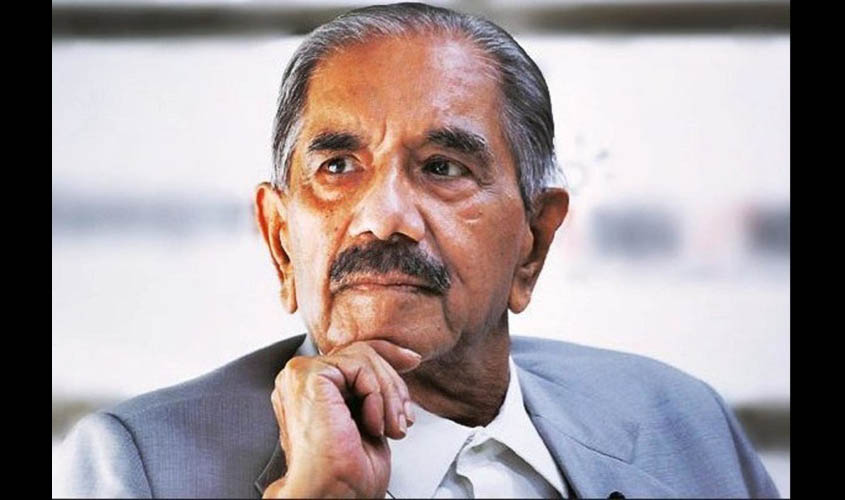The mystique of Rajinder Kumar Dhawan, better known as RKD, stemmed from the fact that he perhaps was the best known Congressman in party circles after the Nehru-Gandhi family. His proximity to Indira Gandhi, backed by the perception that he was her “Man Friday”, ensured that he was one of the singularly most powerful aides any Prime Minister in this country may have had. Immaculately turned out with back-combed hair, Dhawan was always hands-on. His photographic memory, as also his meticulous habit of maintaining copies of important documents, created an aura of fear in Congress corridors. He had the ready ability to produce a paper proof, or recall a regaling anecdote that thoroughly exposed any leader who wanted to portray himself as someone who could defy the Gandhis, and yet be a part of the system.
Many years ago, in a TV discussion, a certain leader was boastfully reeling off his political achievements, oblivious of the fact that RKD was also going to be a part of the show. The moment Dhawan turned up, and started putting the record straight, the said leader, blanched and was rendered speechless. Indira Gandhi’s special assistant had no hesitation in castigating the gentleman, while reminding him not to forget his humble past—when he used to drive a ramshackle Lambretta scooter, and stand for hours outside the Prime Minister’s house to have a few short minutes of her time. It was quintessential Dhawan who knew how to put people in their place when they began putting across an exaggerated account of their accomplishments.
A long while ago, while I was with the Hindustan Times, well-known bureaucrat Bishen Tandon, principal secretary to Atal Behari Vajpayee, during the latter’s 13-day government in 1996, made uncharitable comments about Indira Gandhi in his autobiographical book. In his memoirs, Tandon, who at one time was a part of Indira Gandhi’s secretariat, attempted to create an erroneous impression regarding the former Prime Minister. I was on my way to office, when RKD called up asking me to come down to his Golf Links residence since he had some classified information to share. On reaching his house, he presented me with a photocopy from his file, wherein Tandon had obsequiously entreated for his reinstatement in the PMO, after Indira Gandhi’s return to power in 1980. The letter, clearly perforated holes in what had been penned in the book, and with a single stroke portrayed the bureaucrat as a person who was seeking pardon so that he could be re-inducted in her office. The letter was prominently published by the HT, even though Tandon was holding a pivotal position in the K.K. Birla Foundation. The story was appreciated by Mr Birla, the chairman of the group, and a dear friend of RKD.
On another occasion, during one of my meetings with RKD, he spoke about his own memoirs, and said that he proposed putting pen to paper so as to recall many of the momentous happenings that took place in the country and the behind-the-scenes machinations and manipulations. When I politely inquired if he had been able to commission a reputed publisher, he, in chaste Punjabi, shot back that as, and when, he chose to bring out his tell-all, there would be a long queue of publishers lining his front door.
Following the publication of Makhan Lal Fotedar’s The Chinar Leaves, RKD phoned to inform me that he intended to tear the book into shreds since he was positive that there had to be many half-truths in it. Dhawan and Fotedar, the latter who was both Indira and Rajiv’s political adviser, did not, on most matters, see eye to eye. A week lapsed after this outburst and so I rang him up to enquire why he had not reacted to what he had described as “half-truths”? Dhawan gracefully conceded that there was no issue to contest. “Fotedar has rightly described me as an Indira loyalist, which I shall remain till I die. Many people want me to contradict certain things but I am not interested in needless controversy.”
Dhawan had his own style of dealing with matters. Over a drink, he would arrogantly speak of his influence on varied consequential decisions and on being prodded, would unabashedly announce that nobody had enjoyed as much power as he did, while he was with Indira Gandhi. “People were jealous of me and would carry tales to Indiraji. But she would never believe them.”
Hailing from Chiniot, a small village in Jhang, now in Pakistan, RKD never forgot his roots. He fondly wore his Punjabiat on his sleeve and preferred speaking in his mother tongue to those who shared his Punjabi background.
My last meeting with RKD was in March this year, at the wedding reception of former Himachal minister G.S. Bali’s daughter. Dhawan, accompanied by his wife Achala, appeared visibly ill, as he was physically assisted to the venue by two Congress activists. Acutely conscious of his ailing physical state, he hastily exchanged greetings with several guests and asked me to come by to his home on any mutually convenient day. Thereafter, I spoke to him a few times, and for some odd reason, could not, like every year, greet him on his birthday on 16 July.
The end came on the evening of 6 August and subsequently Dhawan’s funeral was attended by hard-core Congress activists who are conspicuous by their absence at official party functions. Between us.

